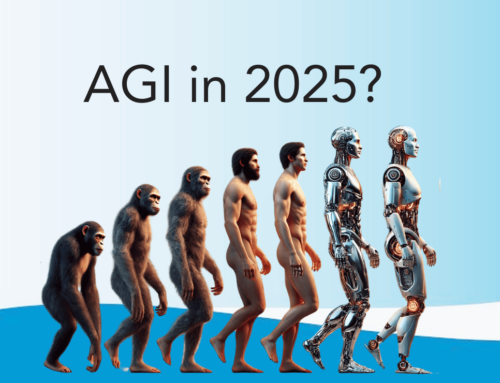 Two years ago, I picked a “Magnificent 7” list that included Automation, Deep Learning, IoE (Internet of Everything), Intelligent Apps, Security, Digital Twins, and Ghosting. Here’s my list for 2019 of the NextGen and NextLevel tech that have caught my eye and the implications for real estate.
Two years ago, I picked a “Magnificent 7” list that included Automation, Deep Learning, IoE (Internet of Everything), Intelligent Apps, Security, Digital Twins, and Ghosting. Here’s my list for 2019 of the NextGen and NextLevel tech that have caught my eye and the implications for real estate.
1. Brain Chips
These are microchips implanted into your brain.
Imagine if you could delete memories. A company called Kernel is working on brain chips that would allow you to not only erase memories, but also restore memories. Someday, we might even buy new memories. Right now, in the UK, they are testing brain chips on people with epilepsy and are reporting good results.
Big names are jumping into the space of neuroscience and the idea of connecting the brain to computers, including Elon Musk and Mark Zuckerberg.
How Does This Relate to Real Estate?
The founder of Kernel says that in 15 years, brain chips are going to become as common as smartphones. If we can alter one’s memories, that could have a dramatic impact on the emotional quotient that has always made real estate so different than everything else. Many people will never sell the family home for sentimental reasons. What if we could swipe a screen and change that?
2. Augmented Analytics: Business Intelligence on Steroids
There’s a new kind of AA, and this is one you’re going to want to join. Right now, a hot trend is either hiring a data scientist in-house or contracting with a freelance data scientist for project work.
Data scientists can help you dig through your data to uncover correlations that give you remarkable new insight into your business and your markets. But this type of data research takes time. And some of it is still a manual process.
Augmented Analytics is where automation meets data analytics. In other words: No more manual data digging. This is Business Intelligence — or BI — on steroids. It’s quicker and smarter. AA can find correlations that we previously didn’t know existed because it can crunch through much more data faster.
Here’s the big plus: it also narrates insights visually and uses natural language, so you get the information you need in a format that you can understand.
How Does This Relate to Real Estate?
The use cases for studying market trends in neighborhoods alone are pretty limitless. For example, can you imagine having a listing conversation and being able to say that based on all the current market data, if a customer waits another 30 days to list their home for sale, they will likely double their days on market so they better list with you NOW? That’s the kind of business intelligence that’s going to come from augmented analytics.
3. Autonomous vehicles: Drones, Cars, Buses, Trucks and even Motorcycles
If you have bought a new car in the last 18 months, you already see the influence of autonomous technology. Things like automated collision avoidance systems and lane correct. The new Volvo XC40 has so much technology it almost drives itself and is on back order for four months. The Volvo 360 concept self-driving car features a bed and is billed as an alternative to air transportation with door-to-door service and no TSA airport hassles.
The Tesla Self-Driving, All Electric Truck may be the coolest looking thing ever to hit the road and already had hundreds of pre-orders. The second coolest thing may be these autonomous motorcycles that are showing up at car shows from BMW and Yamaha.
And let’s not forget the drones – all of these things are getting really smart.
For example, Amazon.com has a new patent a delivery drone that can respond to human gestures. Amazon, which is based in the Seattle area where I live, wants to have a fleet of unmanned drones to deliver packages in under 30 minutes. This patent would help Amazon deal with humans interacting with a delivery drone. For example, if a customer gives a welcoming thumbs up, it lands; if the customer shouts or frantically waves their arms, it aborts.
How Does This Relate to Real Estate?
First, ride sharing is already radically altering the behavior of an entire generation. Car sales are down, as Millennials are demonstrating they don’t need to own a car. Uber or Lyft work fine, as do other car-sharing services. Once autonomous vehicles are omnipresent, how popular are homes with 2 and 3 car garages? Will we eventually need homes to come standard with a garage at all? In many metropolitan areas, that answer has been no for some time.
A second takeaway is a drone in a box concept I helped write about last year for the Florida Realtors’ Tech Helpline blog. With a big listing, aerial footage is nearly a requirement today, but it’s too risky or too time-consuming for most agents to be drone pilots. It can be expensive to hire someone, and if you have a kid do it, you’re putting at risk either quality or dependability of the end product.
The drone in the box concept is that an autonomous drone is ordered using the address of the property. The drone arrives in a box with the flight pre-programmed based on Google Earth mapping. All the agent does it take it out of the box, scan the QR code to download the software to start it up and once it is finished, put it back in the box and ship it back. A link to the video is emailed to the agent before the drone is even back in the box.
4. Progressive Web Apps
This tech has been around for a while, but it is gaining steam because the User Experience is getting better and better. The fact that Google is throwing its weight behind it doesn’t hurt.
Progressive Web App provides a native app-like experience on the web, without downloading and installing an app. Lyft, for example, is using a Progressive Web App tech at ride.lyft.com.
Now, this approach is desirable to me because I have about eight screens of apps on my iPhone of installed native apps, the majority of which I have used a couple of times or less. I’ve found I am not alone in having a bunch of apps on my phone I never, or hardly ever, use.
We know that mobile is everything and continues to be everything. Yet most real estate firms have failed with trying to deploy their native apps. Getting customers to download and install their apps by and large have been folly. Progressive Web Apps might be that secret sauce.
How Does This Relate to Real Estate?
Applications for real estate are pretty obvious. We just heard from NAR that the average agent website gets zero leads, and a lot of, if not most agent websites are not mobile friendly. Yet mobile is dominating the Internet and most real estate search behavior. If brokerages could offer their agents Progressive Web Apps, that might be a way to solve some pain-points and better deliver what their customers want.
5. Digital Privacy and Ethics
It’s said legislation always seriously lags technology and we see this time and time again. If you look the mess Facebook has been through over the last year; we have a big disconnect when it comes to Digital Privacy and Ethics.
Just about every emerging technology brings with it a Dark Side. My clients have written about the Dark Side of AI, for example.
Take autonomous vehicles as an example of ethical issues. An autonomous car is about to crash and has two choices. Either of which people are going to die. One car has 8 people in it, the other has 2 people. The autonomous vehicle decides to crash into the car with 2 people because its software program says two potential deaths are better than 8.
But here’s the problem. If there were a human driver in the autonomous car, he would have seen that the 8 people in the vehicle were all wearing orange prison garb, there were bullet holes in the car, and the two windows were shot out. The other car with two people were in a transport vehicle marked that it was carrying a live donor organ and driven by medical personnel. Which was the right choice? The one the autonomous car made or the one a human driver would make? Now, this is an extreme example, but it points to the kind of Digital Ethical considerations that we haven’t dealt with that new technology will present us – in spades.
How Does This Relate to Real Estate?
A lot of people dropped off Facebook because of issues surrounding Privacy. Some folks in real estate did a “Chicken Little,” and we had to remind them that despite the fallout from Facebook, in real estate, it’s still the number one place to reach customers and peers with the lowest ROI. But the negative impact from Privacy is real, and we recently had another data breach. Data breaches are going to be commonplace, unfortunately, for some time to come.
My favorite Privacy saying is that “Google knows more about you than your spouse or the NSA.” It’s true. Our online behavior is tracked and traced in ways we can’t even imagine. A friend recently told me that Comcast provided him with a list of everyone who ever signed onto his home Wi-Fi – it covered 10 years; that’s frightening.
Now that machine learning and AI can corollate all this data, it can make predictions about what we are going to do or assess the state we are in before we even know it or realize it. Remember Brad Inman’s story about how Google knew his daughter was pregnant before she did?
Agents are selling more houses with all this new smart home tech than ever before, and that’s growing exponentially. Does the agent make sure the seller provides all the passwords? Does the buyer remember to change all the passwords and re-setup all that smart tech? It’s akin to the question, “Does every buyer change all the locks on all the doors when they buy a home?” They should, but do they?
The biggest tech privacy law that directly impacted everyone in real estate and emerged this year was GDPR (General Data Protection Regulation), and most people were pretty much asleep at the wheel. Too many people in real estate thought — and still believe that this European privacy law is limited to Europe. It’s not, and one of these days, a big hammer is going to fall. And while an agent with a single website out of compliance is highly unlike to get fined, someone is going to be targeted and live a nightmare. Now a similar law is coming to California in 2020. That may sound far away, but 2020 begins in less than 13 months from now. The clock is ticking, and real estate needs get in compliance with privacy laws, or we are all going to get burned.
6. Conversational AI
This is my favorite tech trend and the one I think that is going to have the most immediate and profound impact on real estate. It’s why I saved it for last. If you want your mind to be blown, dig into what is happening at OJO Labs in Austin, Texas. Not only did a fish swallow a whale this year when OJO Labs combined with WolfNet – a real estate data giant that’s been around for decades – but what’s coming next is likely to make us go “Wow” again. And again.
Their product, OJO, is based on Conversational AI, and it is getting smarter all the time. The brighter it gets, the better it gets, and that means the more valuable it will be to agents everywhere.
In parallel, I have been writing about Alexa and Google Home as game changes in real estate since they were introduced. We have Alexa units over around our home, and I have Google Home in my office.
As an aside, Alexa is our clear winner. Why? Not because it is smarter than Google, because it is not. But it is more useful to everyone in our home. For example, the cheapest Alexa – the Echo Dot – wins for one simple reason: it has an audio out port and the cheapest Google Home unit, the Mini, does not. If you have a house of Bluetooth speakers, that’s not an issue, but most people do not. We don’t. And that means we can plug a $29 Dot into our powered Bose speakers and our stereo systems and run full high-fidelity audio from that tiny box. Google blows it by not adding that feature. With its play music “Everywhere” feature, our entire house is fidelity filled at a fraction of the spend our friends shelled out for Sonos.
How Does This Relate to Real Estate?
Alexa, like OJO, is a game changer in real estate. One of the biggest reasons is Blueprints. Blueprints let anyone create a custom Alexa skill. That means any agent can create a script so that Alexa can give an Open House Tour of any property they list. The Florida Realtors Tech Helpline covered the story here: “Amazon Automates the Open House.”
The next Alexa advantage is how much smarter it continues to get, just like OJO. The work Alexa is doing with Conversational AI is groundbreaking. Amazon has an annual global challenge called The Alexa Prize that University teams compete to win on worldwide. Their goal is to develop socialbots that can converse coherently, like a real person, for at least 20 minutes.
They are not quite there – yet – but the 2018 winners, announced in late November, was a team from UC Davis that took home a $500,000 prize for developing a socialbot that could maintain a conversation, like a real person, that lasted for an average of 9 minutes and 59 seconds!
7. 3D Printing for Everything, Everyone
Two years ago, we were talking about the Internet of Everything. Today, we are talking about the Internet of Everything Everywhere. Smart tech is not only on our wrist and inside all of our appliances (TVs, microwaves, refrigerators, washing machines and more) but now we are entering the NextLevel phase: making our own stuff.
3D Printing for Everything and 3D Printing for Everyone are two trends that are emerging rapidly, and the technology is evolving so fast, it is hard to keep up. So here is a quick review of just a few of the things that can be done today – not future tech lab stuff – but a technology that is being used by commerce.
I saw my first metal 3D printer at the South Dakota School of Mines when our youngest was touring schools to study Mechanical Engineering. What is happening with some of the newest 3D metal printers – technically called LDT Laser Deposition Technology – makes my brain hurt.
Today, there is everything from 3D Printed food to a full 3D Printed Bar and cocktails. Complexity is what is being solved: things we once could not do are now possible.
Hewlett Packard now offers full-color 3D printing in a single print with Multi Jet Fusion (MJF) technology. Right now, 3D printing is limited mostly to a single color, but HP tech has changed that. Like all tech, the price is coming down while the speed is increasing, as HP touts its newest 3D tech and delivers parts “up to 10 times faster at half the cost.”
We have 3D printers that print wax molds for complex castings and 3D printers that can print a complete electronics circuit board. Even Mercedes Benz is now promoting the replacement parts it makes available that are 3D printed.
The newest 3D printing next tech is wicked. Carbon’s Continuous Liquid Interface Production or CLIP 3D printing solves the speed problem. Other metal 3D tech has been painfully slow – true of all early 3D printing tech. Carbon can 3D print complete objects in less than 10 minutes. Parts are “grown,” as Carbon likes to say, out of its resin vat with no discernable layer lines associated with other 3D printing processes.
Another firm, called XJet has invented another 3D metal printing process. It can print parts that feature highly complex geometries impossible to reproduce with other metal 3D printers. For example, it can print moving, metal parts, such as interlocking gears, in a single build.
One of the coolest applications? 3D art printing. At MIT, researchers have created a technology that takes a two-dimensional painting and reproduces a 3D painting that is an exact copy of the original. Using a combination of deep learning and 3D printing, this process, called RePaint, can reproduce canvas artworks. This technique even captures the exact lighting of the original.
How Does This Relate to Real Estate?
Imagine a knob breaks in the kitchen; you print out an exact replacement. Does your taste in art runs from Picasso to Hockney? You can have replicas of both hanging on your walls because you can afford exact copies so precise, no one can tell the difference. Your buyer wants something different? Give them their favorite word art as a closing gift.
From bike parts to appliance replacement modules, we are entering a world where 3D printing is going to change how we think about building and buying and replacing things in the future.
Bonus Future Tech Trend: Graphene
Finally, it’s not just the tech products that will impact real estate, but advancement in the underlying science. The hot topic people are rediscovering is graphene and the potential Smart Home applications. Digital Trends wrote about “9 amazing uses for graphene, from filtering water to smart paint” in January.
Graphene has been called a “miracle material” because it is stronger than steel but thinner than paper. It is transparent, but dense, features electric and thermal conductivity, elasticity, flexibility, hardness resistance and capacity to generate chemical reactions with other substances.
While the vast majority of its uses for the home are still in the lab and mostly theory, they are worth watching, because of its potential. However, the biggest inhibitor to its widespread use: Graphene is ridiculously expensive to produce in large quantities.
Tech issues also inhibit its mass production, as Digital Trends points out: “when large sheets of graphene are produced, there is an increased risk of tiny fissures and other flaws appearing in the material.” As with any new technology, as graphene becomes more mainstream, other downsides will emerge.
But assuming these issues are resolved, as was the case with Silicon in its early days, we could see such implications for real estate as:
- Painted walls that change color
- Watered lawns sourced from filtered salt water
- Massive home energy consumption reduction (superconductor use with zero resistance)
- Touchscreens that emit high-fidelity sound, or flat micro thin speakers built flat into walls or ceilings
- Increased home security with bulletproof windows
- Supercharge all your batteries in a few minutes
While graphene-improved Smart Homes today is science fiction, it wasn’t too long ago that you had to go to a phone booth to make a call when you weren’t at home. Technology, because of Moore’s Law, has a way of sneaking up on us and why we need to pay attention to the trends that can impact the real estate business.
Feel free to share your favorite tech trend with me – email kevin@wavgroup.com – as these are just a handful of what’s out there. Wishing you a Happy and Prosperous 2019!





We are headed into a new industrial revolution x10. Excellent article, Kevin.
Many thanks Darryl. Yes indeed the times they are a changin’.